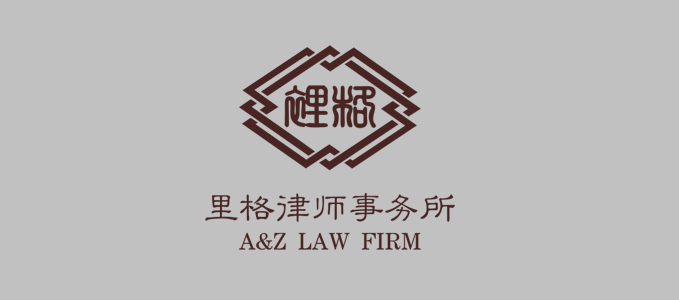Tetra Pak Fined For Abusing Its Dominance
Tetra Pak Fined For Abusing Its Dominance

On November 16, 2016, the Chinese regulatory authority, the State Administration for Industry and Commerce (“SAIC”), issued a notice of penalty decision against the Swedish firm Tetra Pak with a fine of approximately RMB 668 million (nearly USD 99 million) for abuse of dominant market position, following an ongoing anti-trust probe into the global packaging giant since 2012.
Tetra Pak has more than 23,000 employees and its packages are available in 170 countries. It is part of the private Tetra Laval group, which is owned by a Swedish family. According to its website, it entered the Chinese market in 1972. It has a research center in Shanghai and numerous packaging material plants in several Chinese cities. This instance is not the first time Tetra Pak has been accused of violating monopoly laws. It was previously punished by the European Union concerning a monopoly case.
In a statement on its website, Tetra Pak said that it had consistently attached importance to operating in accordance with Chinese regulations, adding that although the decision of SAIC was regrettable, it would not file an appeal.
During the investigation, which lasted nearly five years, the SAIC had taken such survey measures as; on-site inspection, questionnaire surveys of the market, and enquiry, and had obtained numerous written proofs and electronic materials from Tetra Pak and relevant companies. In addition, the SAIC also conducted investigations, consulted with experts regarding the involved technical expertise, economics, laws, etc., and communicated several times with Tetra Pak face-to-face. Tetra Pak was fully cooperative with the SAIC and made adequate statements in response to the investigation.
Through investigation, the SAIC found that from 2009 to 2013, Tetra Pak abused its dominant position in China in aseptic carton packaging machinery for liquid food products (“Machinery”), technical services for aseptic carton packaging machinery for liquid food products (“Technical Service”), and cartons for liquid food product aseptic packaging (“Carton”). It was finally ruled that Tetra Pak had violated articles 17.4 (restricting trading without any justifiable cause), 17.5 (implementing tie-in sales without any justifiable cause) and 17.7 (other practices constituting abuse of dominant market position as confirmed by the Anti-Monopoly Enforcement Authority under the State Council) of the Anti-Monopoly Law of the PRC for the following reasons:
With its dominant position in the Carton market, Tetra Pak restricted its raw material suppliers from cooperating with Tetra Pak’s competitors and using relevant technical information, and thus prevented its raw material suppliers from supplying goods to Tetra Pak’s competitors. Such conduct violated Article 17.4, as it restricted Tetra Pak’s trading counterparts’ ability to trade with anyone other than Tetra Pak and the party designated by Tetra Pak, without justifiable cause;
By using its dominant position in the Equipment market and Technical Service market, Tetra Pak implemented tie-in sales of its Carton during the supply of Equipment and Technical Services. Such conduct violated Article 17.5, as the tie-in sales had no justification and were unreasonable conditions to the trading; and
By adopting loyalty discount schemes which excluded and limited competition, such as cumulative sales volume discounts and customized purchase volume target discounts, Tetra Pak prevented fair competition in the Carton market, and thus violated Article 17.7, i.e. the miscellaneous provision. The SAIC for the first time defined a “loyalty discount” as; “other practices constituting abuse of a dominant market position as confirmed by the Anti-Monopoly Enforcement Authority under the State Council.” By doing so, the theory of loyalty discounting (already widely acknowledged in the EU and the US) has been practically adopted as another legal ground to regulate the conduct of an abuse of a dominant market position. This decision has great practical significance, and also brings new challenges and requirements to companies’ compliance systems.
This is a heavy penalty imposed by the SAIC in relation to an abuse of dominant market position, and the first loyalty discounts related case in China. It is said that the National Development and Reform Commission, China's top economic planner, has also targeted the Nestle unit ‘Wyeth Nutrition’, France's ‘Danone’, ‘Mead Johnson Nutrition’, ‘Abbott Laboratories’ and Dutch firm ‘Royal Friesland Campina’ over what it described as high prices for formula. Chinese authorities had been aware that anti-monopoly measures could result in the favor of Chinese economic development, facilitate fair competition, prevent price monopoly, safeguard the market order, and in the end, protect the public’s rights and interests.
These demonstrate the resolution of Chinese authorities to enforce the Anti-Monopoly Law of the PRC, as well as to increase the seriousness of attitude taken with regard to the investigation of anti-monopoly cases. The National Development and Reform Commission has also started to actively accelerate the enacting of guidance of relevant anti-monopoly practices and work on amendments in the interest of improving current anti-monopoly laws.
Multinational companies with large market shares should pay close attention to the rapid development of anti-monopoly enforcement in China, and prepare for the challenges it might pose.



